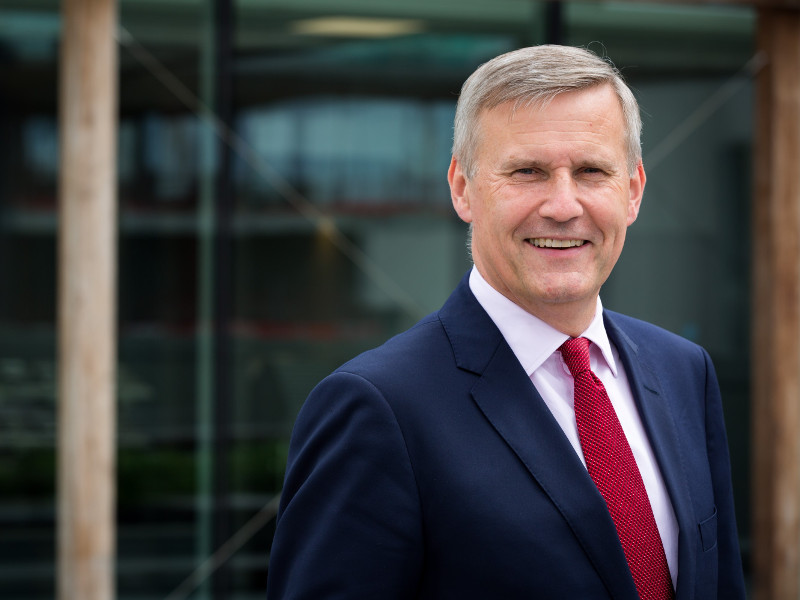Brendan Morrissey has created iDyslexic, the world’s first social network to assist children and adults living with dyslexia and ADHD. He talks to Barry Walsh.
What is iDyslexic? How did it begin?
iDyslexic is the world’s first bespoke social network to assist children and adults living with dyslexia and ADHD. It’s a social network to connect parents with schools and professionals and for people to make friends with dyslexics around the world.
I’m dyslexic and have ADHD and passed that on to my son Ben, so I guess that’s how it all began.
“We’re teaching children that if you find what you love you can become the very best at it because your creative brain works differently.”
What is your background and what inspired you to set up iDyslexic?
My background is music. I was a recording artist signed to Geffen Records in Los Angeles. Over the past 15 years I’ve become active in the tech space. I currently work across 23 projects ranging from music to adventure, education, AR, safety, talent discovery, neuro diversity to social impact.
My son was diagnosed with dyslexia when he was six. He’s 14 now. Two years ago he was struggling at school and thought he was the only person in the world living with dyslexia so I built him a social network to show him that he’s not.
How did you go about developing the platform? How long did it take? is there anything you would do differently?
It took a year of research and a year of development. There are a lot of platforms out there that talk about dyslexia but no space that connects everyone. There was no secure classroom for a parent to upload their IEP (Individual Education Plan) file and invite in their child, case worker and teachers. Connecting parents to schools daily is game-changing because everyone is accountable, and parents can assist from home.
Over the past year we’ve proven that wrapping a social network around a medical condition works because children are opening up on it, something they won’t do on Snapchat or Instagram.
We’re always developing, so I never stress about doing things differently. We have new wireframes that we’re currently coding to launch version 2.0 of iDyslexic over the coming months.
Have you won any awards or gained any press attention since starting?
Yes, we were the first company in Europe chosen by Microsoft for their AI for Good cohort in London last year. We graduated in June. Jean Philippe Courtois the global President of Microsoft has been tweeting about us over the past months.
I had lunch with Princess Beatrice a few months back. She was diagnosed with dyslexia when she was seven. She’s a fan of iDyslexic. A remarkable lady Helen Arkell looked after her and she’s now super bright, working in tech around the world. Beatrice is a shining example that dyslexia won’t hold you back.
Stanford, Duke and Penn State University are all working with us, so yes, we’re getting recognised for the work we’re doing because we’re the first social network to address the issue.
Did you receive any supports or funding while starting?
No, we have been self-funded to date
What’s the biggest misconception you find people without dyslexia have about dyslexic people? How do you go about dispelling that myth?
Oh, there’s so many: that we’re stupid, can’t read, can’t write. There’s amazing technology available now through Microsoft learning and apps like Grammarly that will help you to write a sentence that makes sense.
We dispel that myth by excelling at what we do. I’m involved in some market leading companies like ProTunes, Wonde, MobStar, eSchools. That happened because of my dyslexia and having the creative side of my brain to guide me instead of an academic one.
I’m fully convinced that dyslexia led to success whereas if I was academic it would have been a completely different path and certainly not as fun. I was lucky to find music in my teens and get signed in 1991 to Geffen Records. We’re teaching children that if you find what you love you can become the very best at it because your creative brain works differently.
Apart from finance what were some of the toughest challenges about starting iDyslexic?
The biggest challenge for me was bringing everything that I had parked from my childhood back to life. I left school at 15 because I couldn’t understand what was going on and was made to feel stupid. Back then there was no understanding of any neurodiverse conditions. You were just thick or stupid. When situations arise that I can’t cope with the frontal lobe of my brain shuts down and I can’t express how I feel. The brain becomes overwhelmed. That used to happen in school and still happens today.
That’s one of the main reasons I built iDyslexic so children won’t have to feel like this when they’re older. Most days I receive messages from parents saying their child was diagnosed and was very low, but when they put them on our apps and saw the positive posts and community and they changed overnight. We started doing that for a few people, then thousands, so I’m very pleased with the progress we’ve achieved in the past year. Those messages make it all worthwhile.
“We have children from around the world contacting us saying their government or education system don’t even know what dyslexia is, so I feel we’re at the tip of the iceberg and with 1bn people with a learning disorder there’s huge growth potential”
What advice to people with dyslexia would you give about starting a business?
That’s a tough one because I meet most entrepreneurs fresh out of college who know all the buzz words, “we’re building a SaaS model on blockchain with AI and machine learning” but you know behind it all they have no business sense.
There should be an agency set up to talk people out of entrepreneurship. Mainly because they’ll waste four years of their lives doing something that other companies do much better or worse still burn through friends and family funding to build tech that’s not scalable because they don’t know what they’re doing and lose their family relationships over it. So maybe I’m not the best person to ask that question to.
Tech and entrepreneurship is a pride-sucking job. Everybody sees the huge exits but they don’t understand the daily grind and failure associated with tech.
There are some highs, but a huge amount of rejection and that’s really hard to deal with especially if you’re neuro diverse. So, unless you’re 1000pc certain that what your building is unique and game-changing, and you have a full understanding of how to build it, take it to market and scale I would suggest to go and get a job instead. I know it’s harsh but there are so many remarkable job opportunities in Ireland because of our tech structure, that’s a much easier route to take and those employers want you on their teams.
“When they mapped the human genome, they discovered it’s not attention deficit disorder but a ‘super focus.’ Business owners want that super focus and neuro diverse brains to work out new solutions to problems”
Where do you see the company’s growth in the next 2-3 years?
We’re building in languages, voice recognition, e-commerce, assessments, community verified products. We have children from around the world contacting us saying their government or education system don’t even know what dyslexia is, so I feel we’re at the tip of the iceberg and with 1bn people with a learning disorder there’s huge growth potential. I’m a shareholder at eSchools and Wonde. Between them we operate in 20,000 schools so we’re about to partner to push iDyslexic out to our network.
The number of Irish found businesses in the diversity and Inclusion space has skyrocketed.
Neuro Diversity seems to be the buzz word alright. It’s not that long ago that no-one talked about these issues, so it’s a huge relief that we can stand up and be proud of having dyslexia, ADHD, autism, etc.
When they mapped the human genome, they discovered it’s not attention deficit disorder but a “super focus.” Business owners want that super focus and neurodiverse brains to work out new solutions to problems.
One in five people have a learning disorder. Dyslexia is the biggest, so the education system is completely broken. 70pc of inmates in prisons have a learning disorder so instead of focusing on education they focus on crime. Early intervention is key to get people on the right path. It would make a lot of sense for the Irish Government to invest early in these diversity and inclusion start-ups instead of investing when it’s too late.
Check out Barry Walsh’s superb list of 15 inspiring entrepreneurs with a learning disability
Interview by Barry Walsh
Published: 10 January, 2020






